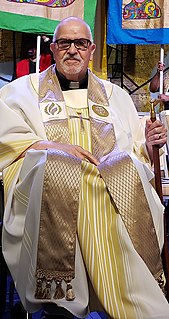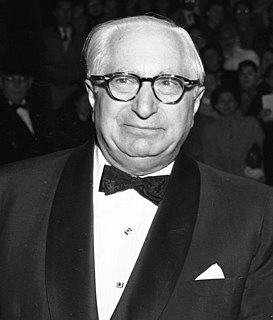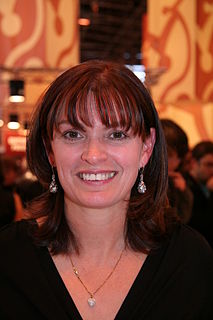A Quote by Bill Vaughan
Historical investigation and literary criticism have taken the magic out of the Bible and have made it a composite human book, written by many hands in different ages.
Related Quotes
The Bible is a wonderful book. It is the truth about the Truth. It is not the Truth. A sermon taken from the Bible can be a wonderful thing to hear. It is the truth about the truth about the truth. But it is not the truth. There have been many books written about the things contained in the Bible. I have written some myself. They can be quite wonderful to read. They are the truth about the truth about truth about the Truth. But they are NOT the Truth. Only Jesus Christ is the Truth. Sometimes the Truth can be drowned in a multitude of words.
First one gets works of art, then criticism of them, then criticism of the criticism, and, finally, a book on The Literary Situation , a book which tells you all about writers, critics, publishing, paperbacked books, the tendencies of the (literary) time, what sells and how much, what writers wear and drink and want, what their wives wear and drink and want, and so on.
The Bible became the book of books, but it is not one document. It is a mystical library of interwoven texts by unknown authors who wrote and edited at different times with widely divergent aims. This sacred work of so many epochs and so many hands contains some facts of provable history, some stories of unprovable myth, some poetry of soaring beauty, and many passages of unintelligible, perhaps coded, perhaps simply mistranslated, mystery. Most of it is written not to recount events but to promote a higher truth—the relationship of one people and their God.
This withdrawal of theology from the world of secular affairs is made more complete by the work of biblical scholars whose endlessly fascinating exercises have made it appear to the lay Christian that no one untrained in their methods can really understand anything the Bible says. We are in a situation analogous to one about which the great Reformers complained. The Bible has been taken out of the hands of the layperson; it has now become the professional property not of the priesthood but of the scholars.
If we might reverently imagine ourselves scheming beforehand what kind of book the Book of God ought to be, how different would it be from the actual Bible! There would be as many Bibles as there are souls, and they would differ as widely. But in one thing, amid all their differences, they would probably agree: they would lack the variety, both in form and substance, of the Holy Book which the Church of God places in the hands of her children.
The God in whose hands are all our days and ways, did cast into my hand (one day) a book of Martin Luther's ; it was his Comment on the Galatians! ... I found my condition in his experience so largely and profoundly handled, as if his book had been written out of my heart ... I do prefer this book of Martin Luther upon the Galatians, excepting the Holy Bible, before all the books that ever I have seen, as most fit for a wounded conscience.

































